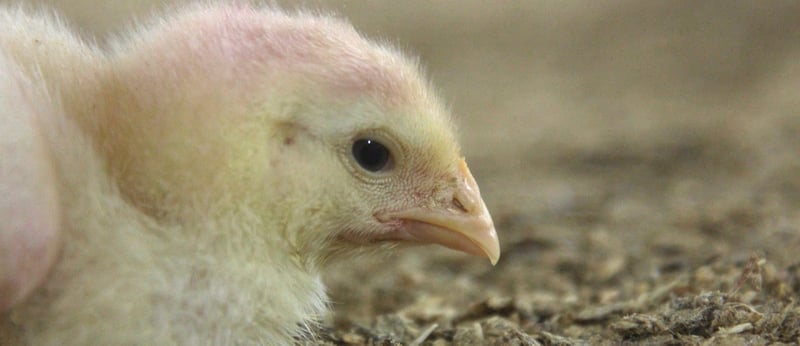
Subsidising Factory Farm Harm: Why Africa Must Lead the Shift Toward Humane and Sustainable Food Systems
Blog
As the world prepares for COP30 in Belém, Brazil, a critical truth is coming into focus, the future of our planet depends on how we farm and feed ourselves. Around the world, billions of the public's money are being used to prop up factory farming, a system that harms animals, people, and the environment.
Our new report, “Subsidising Factory Farm Harm,” reveals that governments continue to fund destruction while neglecting the farmers and communities who could lead the way toward sustainability. For Africa, this is not just another global issue, it is a defining moment to decide whether to repeat the mistakes of industrial nations or to chart a humane, resilient, and truly African path forward.
Understanding Factory Farming and Its True Cost
Factory farming is often presented as a modern solution to hunger and economic growth. In reality, it is a global crisis. Every year, over 80 billion land animals are confined in cages and feedlots, denied natural behavior and dignity. These systems rely on soy and maize monocrops, drive deforestation, consume water, and emit massive greenhouse gases.
Agriculture contributes up to 34% of global greenhouse gas emissions, with factory farming responsible for around 16.5%. Despite its environmental toll, the industry receives USD 842 billion in annual subsidies, second only to fossil fuels. This is not investment in food security, it is funding destruction.
How public funds fuel the climate crisis
Across the world, taxpayer money keeps destructive systems alive. Most subsidies support large livestock corporations rather than small-scale or sustainable farmers. The report shows that beef, soy, and palm oil production, often linked to feed and meat exports, drive about 14% of global deforestation.
In Brazil, beef subsidies average USD 3.1 billion annually, almost equal to the industry’s tax contribution. In the European Union, redirecting half of the USD 88.5 billion spent on factory farming could save 25 million megalitres of water and 19 million hectares of land every year. The biggest cost, however, is not financial, it is animal cruelty, community displacement, and environmental collapse.
The Hidden Toll on People, Animals, and the Planet
Animal suffering: Factory farms prioritize profit over welfare. Animals are crammed into spaces so tight they cannot move, leading to injuries and disease. Overuse of antibiotics has worsened antimicrobial resistance (AMR), already linked to 1.27 million deaths each year.
Environmental destruction: Industrial livestock farming consumes vast land and water resources. Forests cleared for feed destroy biodiversity and release stored carbon, while polluted rivers and degraded soils push ecosystems beyond recovery.
Inequality and exploitation: Factory farming deepens inequality. The profits go to multinationals while smallholder farmers, who feed over 70% of Africa’s population, are left behind.
Africa’s Opportunity to Choose a Different Path
Africa stands at a pivotal crossroads. Unlike many industrialized regions, most African countries have not yet embraced factory farming at scale. This gives the continent a chance to avoid the mistakes of the Global North and lead a transition toward humane, sustainable, and equitable food systems.
Across the continent, agroecology, farming that respects biodiversity and local knowledge, is already succeeding. In Kenya, integrated farms combining crops, bees, goats, and cattle have increased productivity while reducing chemical use and improving animal welfare. Redirecting harmful subsidies toward such models can make agriculture more inclusive and climate-resilient, building a food-secure future for Africa.
Redirecting Subsidies: A Just Transition for All
A Just Transition means shifting away from destructive systems while supporting those affected. Governments should:
- Support smallholder farmers through innovation, fair markets, and training.
- Redirect subsidies to agroecological and plant-based farming systems.
- Integrate subsidy reform into climate and biodiversity commitments.
- Invest in social protection for farmers adapting to new models.
Even redirecting a fraction of harmful subsidies could restore ecosystems, create jobs, and build resilient food systems.
Why This Matters Ahead of COP30
Decisions at COP30 will shape how the world responds to climate breakdown and food insecurity. Africa’s voice must be clear, factory farms are not development. They are engines of cruelty, pollution, and inequality.
By championing humane and sustainable farming, African governments can show real climate leadership. The world needs examples of solutions that protect animals, empower farmers, and heal the planet, and Africa is ready to lead.
Conclusion
Factory farming is destroying forests, harming animals, and trapping communities in poverty and pollution. Redirecting public funds toward humane and sustainable food systems is not just a climate solution, it is a moral obligation.
Africa’s future depends on fair farms, not factory farms. A Just Transition begins when we choose compassion over cruelty, resilience over exploitation, and sustainability over destruction.
The choice is clear. The time to act is now.